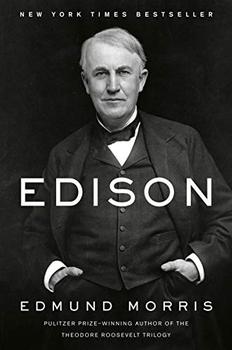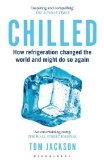Summary | Excerpt | Reviews | Beyond the book | Read-Alikes | Genres & Themes | Author Bio

The Adventures of a Curious Man
by Mark KurlanskyThe first biography of Clarence Birdseye, the eccentric genius inventor whose fast-freezing process revolutionized the food industry and American agriculture.
Break out the TV dinners! From the author who gave us Cod, Salt, and other informative bestsellers, the first biography of Clarence Birdseye, the eccentric genius inventor whose fast-freezing process revolutionized the food industry and American agriculture.
Throughout this smart, eloquent and sometimes troubling biography, Kurlansky celebrates the restless and particularly American energy that animated Birdseye: no experience or opportunity was wasted. Birdseye lived the way he ate, digesting everything. He was a curious adventurer eager to discover the next big thing, and he always looked forward. And though Birdseye lived and worked unworried by the consequences of what he did and what he made, people today must struggle with the repercussions of his inventions...continued
Full Review
(873 words)
This review is available to non-members for a limited time. For full access,
become a member today.
(Reviewed by Jo Perry).
In his preface to Birdseye, Mark Kurlansky faces the issue of whether or not Clarence Birdseye made what we eat better: "Eating frozen food instead of fresh represents a decline in the quality of food. But very often people are eating frozen food when they would have been eating canned, in which case frozen is an improvement." Kurlansky shows how Birdseye, along with other creators of and manufacturers of new processed foods, transformed sometimes-inferior products into those Americans preferred to eat.
But Americans are re-evaluating their relationship with frozen foods. In 2007 the word "locavore" was the Oxford English Dictionary's word of the year. Locavores, who believe in eating foods grown or harvested locally (as opposed to ...
This "beyond the book" feature is available to non-members for a limited time. Join today for full access.

If you liked Birdseye, try these:

by Edmund Morris
Published 2020
From Pulitzer Prize-winning author Edmund Morris comes a revelatory new biography of Thomas Alva Edison, the most prolific genius in American history.

by Tom Jackson
Published 2016
The refrigerator may seem mundane nowadays, but it is one of the wonders of twentieth-century science - lifesaver, food preserver, social liberator.